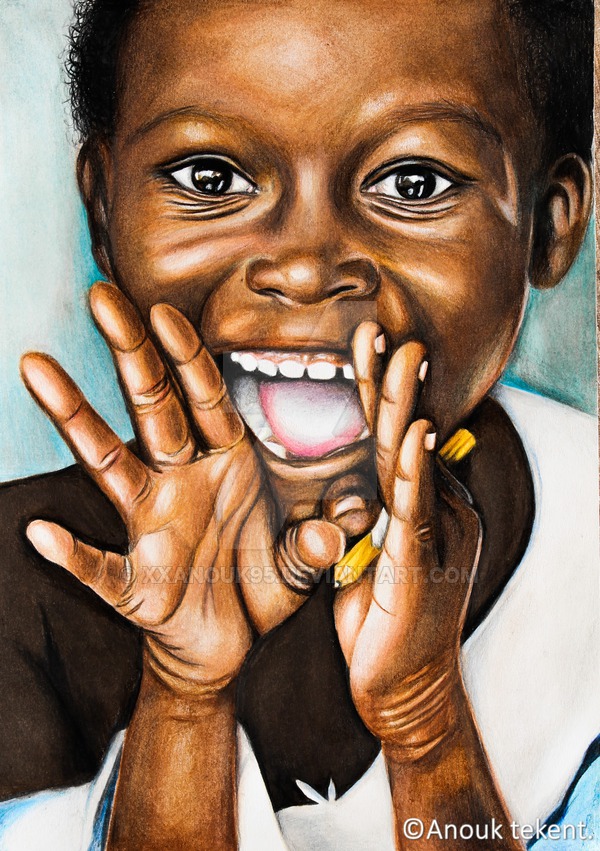Financing education and building Africa’s youth potential is apparently the most significant challenge governments, policymakers, and civil society organisations will have to reckon with in the next ten (10) years. The progress which has been made in this task of building Africa’s youth potential over the last 60 years has been extremely appalling, and there have been almost no specific actions performed to give African students the skills and knowledge needed to create prosperity on the continent.
All across the continent, the challenges of financing education is enormous, and there is an insufficient number of quality higher institutions of learning. A Harvard Higher Education Statistics on Africa shows that higher education enrollment rate for all age groups sums to 5%. Not only has the transition process from high school to university been a challenge for African youth but also illiteracy also continues to rise as a result of the mass poverty engulfed on the continent.
Today in Africa, almost 60% of youth between the ages of about 15 and 17 are not in school. And only 6 percent of young people in sub-Saharan Africa are enrolled in higher education institutions compared to the global average of 26 percent (Africa- America Institute). Relevant data have shown that a total of 32 million children remain out of school in Africa. The trickle-down effect of this is the increasing number of young people taking to the streets, drugging and risking their lives on boats only to travel to Europe. Solutions to these problems are of huge, and the continent is left with the choice of either innovating fast-tracking solutions as a remedy or watch the talents and aspirations of its young people go down the drain. I for one believe that Africa needs to massively invest in higher institutions of learning from a grassroots level and to build the skills and potentials of the continent’s youth since by 2050 Africa will be host to 50% of the world’s youth population.
In response to the seemingly insurmountable challenges on the continent, ranging from poverty, corruption, and dilapidated education facilities, to the increasing number of the unemployed youth population, there’s a rising wave of young Africans making the perilous journey to Europe in search of a greener pasture. The last five years have especially witnessed a massive number of young Africans dying in the Mediterranean all because of their desire to reach the greener pastures of Europe. It’s estimated that over 2,000 young Africans die while en route to cross the Mediterranean Sea every year; this is not only depriving us of talents that should be nurtured on the continent, it’s giving Africa yet another image of poverty and destitution. The situation calls for an urgent and honest approach to addressing the problems that are ingrained within the African fabric. By placing priority on education, fighting poverty and creating homegrown opportunities on the continent with limited focus on foreign intervention, which has over the past decades made African leaders very complacent and dependent on foreign “saviors”, I believe we can make a positive turn-around as a continent. It’s time for Africa to take full responsibility for the challenges she faces and this psychology needs to be built and developed within the minds and hearts of African leaders across the continent.
In most parts of the world, Africa falls behind in terms of enrollment rate. It has been reported that the continent needs a massive investment in education to attain India’s education standards. This means, according to experts, we have to build 200 universities the size of Harvard every year for the next thirty years. This figure appears highly ambitious, but I believe it’s achievable. However, the fact that most governments are systemically bankrupt because of corruption, nepotism, and ineffective leadership, and unstable democracies continue to exist in nearly every country on the continent lends to the continuous depletion of the aspirations of the African youth?
Africa’s problems is not only that we have significant issues to settle, there is also the issue of the continent’s continuous vulnerability to the West’s dictating intervention in how we live. In the last five years, Libya has been a wrecked war zone with the country being divided into territories for different factions since the UN-backed NATO killing of Gaddafi. Sudan remains in turmoil with the future of ordinary people being left to be decided by the guns and bullets of the different troops. As if that’s not enough, the continuously escalating situation in Congo and the lives of its people remain one of the worst on the continent leaving millions of people to take risky boats and flee to neighboring countries as refugees. The underlying common denominator in these three situations is the fact the intervention of The West exacerbated these countries’ existing issues.
One can only imagine what will be the fate of the African youth in the next ten years with these problems being unfixed.
After more than 60 years of independence, the story of the continent remains a sad one to tell. Though entrepreneurship and the Market in Africa are booming, ordinary Africans across many parts of the continent still struggle to meet basic social needs.
If Africa is to be that continent that would live up to the full potential of its people, we need an honest but revolutionary approach from all ends of the continent to tackle our issues head-on.
Some young people across the continent have already started making an impact; however, they need the support and the space to implement the change that they believe is possible. In the area of entrepreneurship, businesses and social ventures are being set up, and many young people remain passionate about addressing Africa’s problems. In the area of governance and democracy, young people have begun standing up to put the political class’ feet to fire. This is evident by the demand of the end of Robert Mugabe’s 30 years of dictatorship in Zimbabwe, the forced resignation of South Africa’s Jacob Zuma pending court trial on several charges of “corruption, money laundering, etc.”, and the resignation of Ethiopia’s prime minister Hailemariam Desalegn in February of this year.
But, I say we can’t be cynical of Africa’s problems. Recent events have shown that there’s hope for the continent as democratic transitions become common as opposed to the past five decades where peaceful transitions of power were few and far between. Rwanda has especially shown us how development is supposed to look like and now serves as a footprint for most governments in education and infrastructural investments. African governments have to commit themselves to improving the lives of their people through national policy programs and public sector reform policies.
As Africa yearns for development and prepares for the big boom by 2050, empowerment of young people with the requisite skills and education must be a cardinal objective that w must look out for, because there can be no prosperity without it.
Authored by Ansumana Konneh
Featured Picture by xxAnouk95

